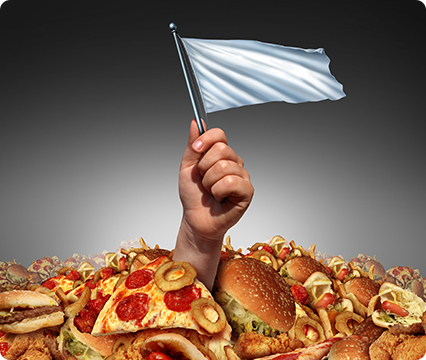Differences in dietary preferences, personality and mental health in Australian adults with and without food addiction


The CNP Diet, Craving, and Food Addiction Research Category explores the psychological, neurobiological, and behavioral interrelations underlying cravings, compulsive overeating, and consumption of highly palatable or ultra-processed foods, highlighting a bidirectional relationship between eating behaviors and dietary intake patterns. Join the CNP Library Membership to learn more.

This 2018 review presents the multifactorial social, neurobehavioral, and metabolic determinants of food intake that influence obesity risk to promote food craving and excessive food intake. The determinants included rewarding foods that stimulate brain reward motivation and stress circuits to influence eating behaviors, as well as stress hormones that hijack the brain’s emotional (limbic) and motivational (striatal) pathways. Sinha (2018) discusses the impact of high-stress levels and trauma, in addition to metabolic alterations such as higher weight, and altered insulin sensitivity, on self-control processes that regulate emotional, motivational, and visceral homeostatic mechanisms of food intake and obesity risk. Also reviewed was the potentially positive interaction between dynamic effects of neurobehavioral adaptations in metabolic, motivation, and stress neurobiology with food craving, excessive food intake, and weight gain. The author highlights key areas that require future investigation to adequately comprehend and address this growing obesity epidemic.
Differences in dietary preferences, personality and mental health in Australian adults with and without food addiction
Subjective experiences of highly processed food consumption in individuals with food addiction
CNP Research Summary can be found in the CNP Library Membership
The trajectory from mood to obesity
Emotional eating
CNP Research Summary can be found in the CNP Library Membership
Is comfort food actually comforting for emotional eaters? A (moderated) mediation analysis
‘Emotional’ does not even start to cover it: Generalization of overeating in emotional eaters
CNP Research Summary can be found in the CNP Library Membership
To eat or not to eat: Effects of food availability on reward system activity during food picture viewing
CNP Research Summary can be found in the CNP Library Membership
Obesity and the neurocognitive basis of food reward and the control of intake
Acupuncture attenuates alcohol dependence through activation of endorphinergic input to the nucleus accumbens from the arcuate nucleus
CNP Research Summary can be found in the CNP Library Membership